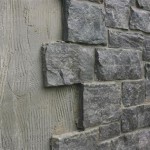Do You Need to Insulate Interior Basement Walls?
Insulating your basement walls is a crucial aspect of maintaining a comfortable and energy-efficient living space. Adequate insulation can prevent heat loss, reduce moisture issues, and enhance the overall comfort of your home.
Determining whether or not you need to insulate your interior basement walls depends on several factors, including:
- Climate: If you reside in a cold climate with long winters, insulating your basement walls is essential to prevent heat loss and keep your home warm.
- Type of Foundation: Basements with poured concrete walls generally require insulation, as these walls have poor insulating properties and can lead to heat loss.
- Basement Usage: If you plan on using your basement as a finished living space, insulating the walls is crucial for comfort and energy efficiency.
The benefits of insulating interior basement walls are significant:
- Reduced Heat Loss: Insulation creates a thermal barrier that prevents heat from escaping through the walls, making your home more energy-efficient.
- Improved Comfort: Insulated walls maintain a consistent temperature throughout the basement, eliminating cold spots and creating a more comfortable living environment.
- Lower Energy Costs: By preventing heat loss, insulation reduces the demand on your heating system, potentially lowering your energy bills.
- Moisture Control: Insulation can help regulate moisture levels in the basement, reducing the risk of condensation and mold growth. li>Increased Home Value: A well-insulated basement can increase the resale value of your home by making it more desirable to potential buyers.
When choosing insulation for your interior basement walls, consider the following:
- Type: Rigid foam boards, fiberglass batts, and spray foam are common insulation materials for basement walls.
- R-Value: R-value measures the thermal resistance of insulation. Higher R-values indicate better insulation.
- Cost: Insulation costs vary depending on the type and thickness.
If you're unsure whether or not you need to insulate your interior basement walls or how to do it, consulting with a qualified contractor is advisable. They can assess your specific situation and provide professional advice and installation services.
In conclusion, insulating interior basement walls is often necessary to ensure a comfortable, energy-efficient, and healthy living environment. By considering the climate, foundation type, and basement usage, you can determine if insulation is right for your home and choose the best materials and techniques to achieve optimal results.

How To Insulate Your Basement Like A Pro

How To Insulate Your Basement S Concrete Walls The Seattle Times

How To Finish A Basement Diy

Insulation Is It Okay To Insulate A Basement Wall When An Interior French Drain Installed Home Improvement Stack Exchange

How To Insulate Basement Walls True Value Hardware

Should I Insulate Basement Walls For A Truly Finished Space

Basement Blanket Insulation Building America Solution Center

Should I Insulate My Basement Constellation
Insulate Interior Basement Walls 1 Rona
Basement Blanket Insulation Building America Solution Center
Related Posts








